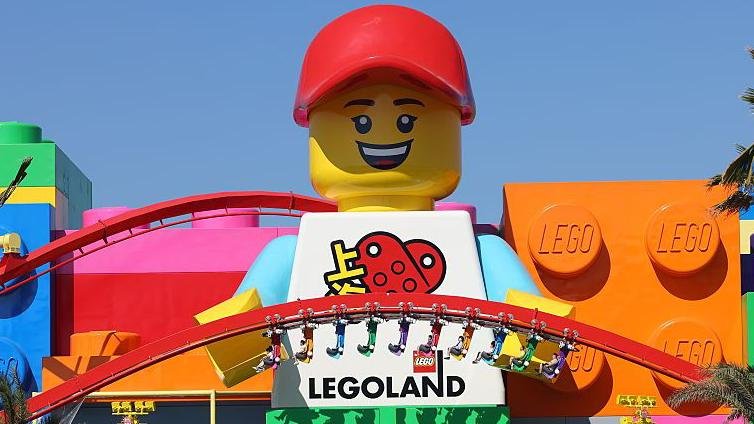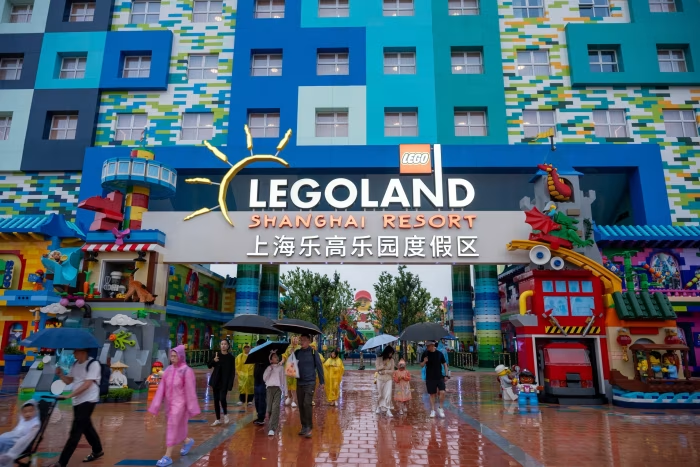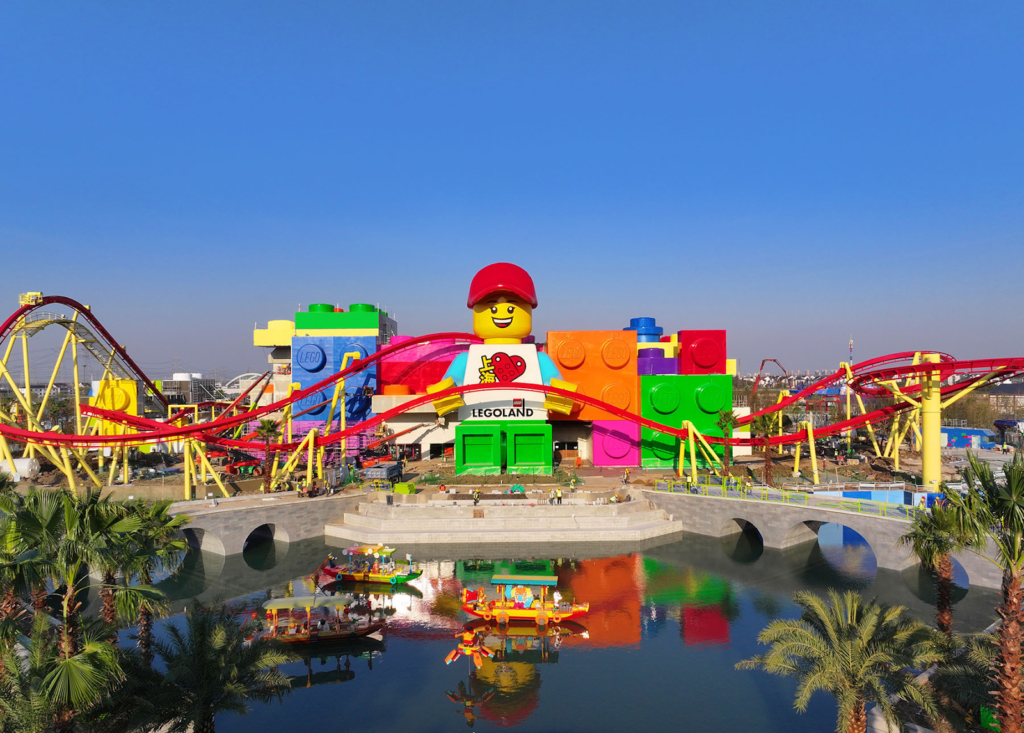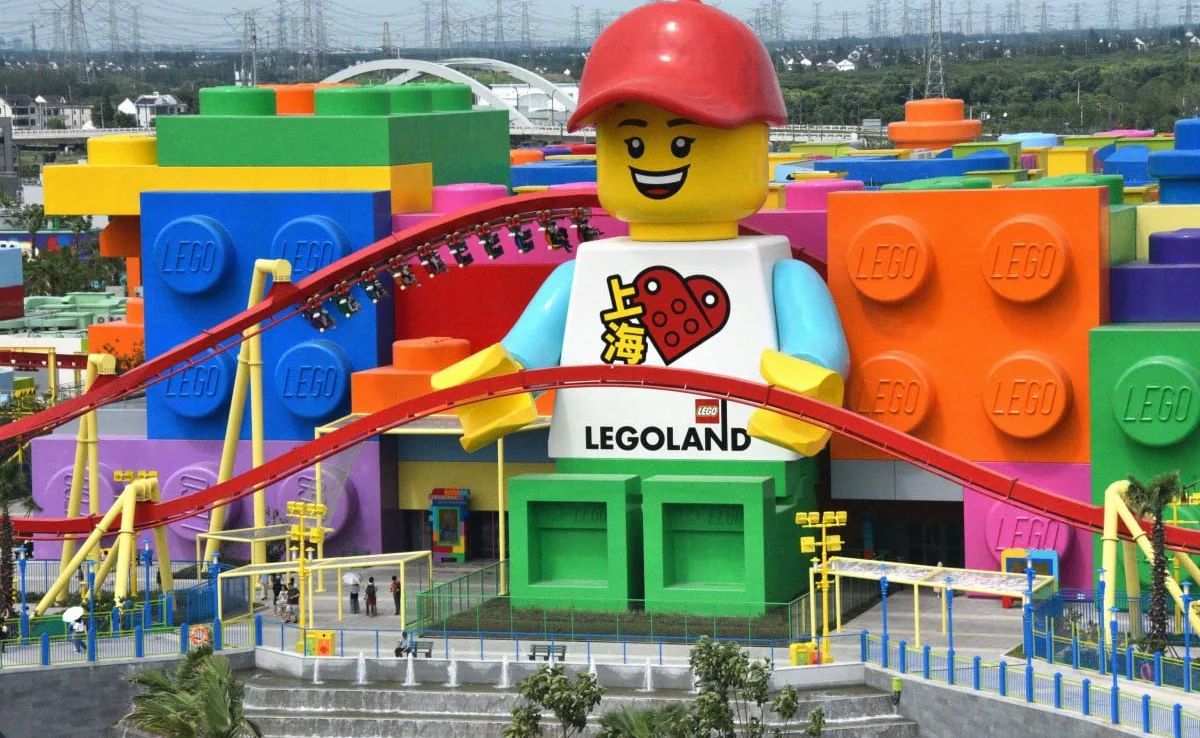China Theme Park Investment: Legoland Shanghai as a Tourism Boost
China theme park investment is gaining momentum as the country’s first Legoland opened in Shanghai earlier this month, attracting large crowds. This launch marks another step in China’s strategy to position itself as a leading global travel destination.

More Western-branded amusement parks are on the way, including Warner Brothers’ Harry Potter and Hasbro’s Peppa Pig. Beijing hopes such attractions will revive the world’s second-largest economy by pulling both domestic and foreign tourists.
How International Brands Like Lego Strengthen China’s Theme Park Strategy
Legoland Shanghai cost $550 million (£410 million), making it the largest park run by UK-based Merlin Entertainments. It features 75 rides across eight zones and showcases a Lego-built miniature Shanghai skyline.

The resort’s hotel offers pirate and castle-themed rooms and can accommodate hundreds of guests. This project resulted from years of collaboration between Merlin, Lego’s parent company, and local authorities.
Officials believe the park will create jobs and boost local businesses. Government-backed firms also hold stakes in major projects, such as Disneyland Shanghai. However, the industry is crowded, with over 400 parks competing for visitors.
Government Support for China Theme Park Investment and Growth
Tourism is a key focus in China’s five-year economic plan. The government is supporting new resorts and parks with tax breaks and infrastructure projects.

Legoland Shanghai has benefited from new public transport links and major roads funded by the state. Authorities have also issued 570 million yuan (£59 million; $80 million) in vouchers to encourage tourism.
“These efforts lower costs for families and boost park attendance,” said Nandini Roy, senior research analyst at Future Market Insights.
International Brands Gain an Edge
International parks like Legoland attract large fanbases among children and young adults. Despite weak consumer spending, parents in China are prioritizing family activities. China theme park investment.
Economist Gu Qingyang notes that international parks also help China project a modern, global image to visitors.
Standing Out in a Crowded Market
Legoland faces tough competition from popular names like Disney and Universal Studios. Influencer Artem Kapnin, who visited Legoland, praised its design but felt it lacked Disneyland’s magic, including parades and fireworks.

Despite this, experts remain optimistic. “Large parks take nearly a decade to build, so long-term planning is vital,” said Prof. Gu.





Nice post. I learn something totally new and challenging on websites
This is my first time pay a quick visit at here and i am really happy to read everthing at one place